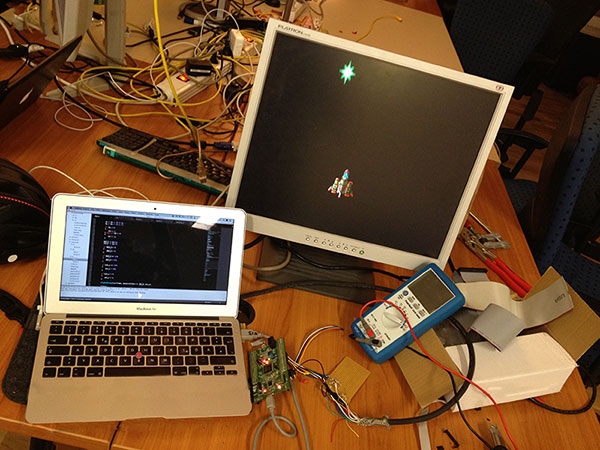Vom 18. bis 20. Mai 2012 findet in Köln die SIGINT, die Konferenz für Hacker, Netzbewohner und Aktivisten, statt.
Unser Beitragsaufruf (“Call for Papers”) ist jetzt online und kann unter http://sigint.ccc.de/Beitragsaufruf begutachtet werden.
Worum es geht? Um die Zukunft, wie schon 2009 und 2010 (2011 fiel die SIGINT aus, um dem Camp den nötigen Platz im Kalender zu geben).
In den letzten Jahren wird die Signaldichte höher, doch obwohl wir immer mehr Input aufnehmen, rücken holistische Entwürfe in immer weitere Ferne, bestimmen Reduktion und Effizienz die Identitäten der Menschen, statt ganzheitliche Ansätze. Immer mehr Informationen zu immer kleineren Zusammenhängen befördern ein fragmentarisches Weltbild, das schließlich im hyperverlinkten Internet seinen deutlichsten Ausdruck gefunden hat.
Aus der Nähe betrachtet scheinen die Elemente chaotisch und ungeordnet, aus der Entfernung aber präsentieren sie sich als Einheit. Die Komplexität wird abstrahiert: Foren, Blogs, Image Boards, private Webseiten und IRC-Chaträume werden von Politik und Presse zur Internet Community addiert.
Die Struktur des Netzes besteht aus zahlreichen Bausteinen – bis auf das letzte Bit, auf das letzte Elektron können wir Systeme identifizieren und ihre Funktionen und Attribute analysieren. Das Verhalten von Computern erscheint uns dennoch willkürlich, Programmfehler bleiben Jahrzehnte unentdeckt und die Auswirkungen auf Wirtschaft und Gesellschaft unverstanden.
Die SIGINT sucht danach, den Widerspruch zwischen dem Kleinen und dem Großen, dem Chaotischen und der Strukur, dem Einzelnen und der Masse zu überwinden. Wir wollen die Baupläne der Zukunft entwerfen und Systeme bauen, die besser funktionieren als die alten, starren Gebilde des letzten Jahrtausends, und dabei den Blick für Systeme als Ganzes nie verlieren.
Als Veranstaltung des CCC pflegen wir weiterhin die Tradition des kreativen Technikumgangs und des sozialverträglichen Hacksports. Nur durch unabhängige und ergebnisoffene Zerforschung können Pfadabhängigkeiten und Algorithmen von technischen Systemen und Gesellschaftsformen einer kritischen Revision unterzogen werden. Für uns ist das Ausdruck einer persönlichen digitalen Selbstverteidigung, die schließlich in einen Hacktivismus für Menschenrechte münden muss.
Wie in den letzten Jahren wollen wir mit der Veranstaltung aktiv in die deutschsprachige und europäische Diskussion eingreifen, dabei sind uns folgende Themen besonders wichtig:
- Ansätze zu einem zeitgemäßen politischen Handeln
- Demokratie 2.1
- Repression
- purpose and effect
- Ethik und Informationstechnik
- Hackerethik 3.0
- inherently absent security
- Entropie und Ordnung
- soziale Netzwerke
- öffentlicher und privater Raum
- augmented Reality
- social hacking
- hackerspaces
- communities
- deep web
- Programmiersprachen und Paradigmen
- Entwürfe für eine neue Welt
- Technologien, Trends
- Bildung, Zertifizierung oder Autodidakten
Über Einreichungen von Vorträgen, Performances oder etwas völlig anderem, das in losem Zusammenhang mit den Themen steht, freuen wir uns. Dabei müssen wir allerdings auch eine Auswahl vornehmen. Überrascht uns!









